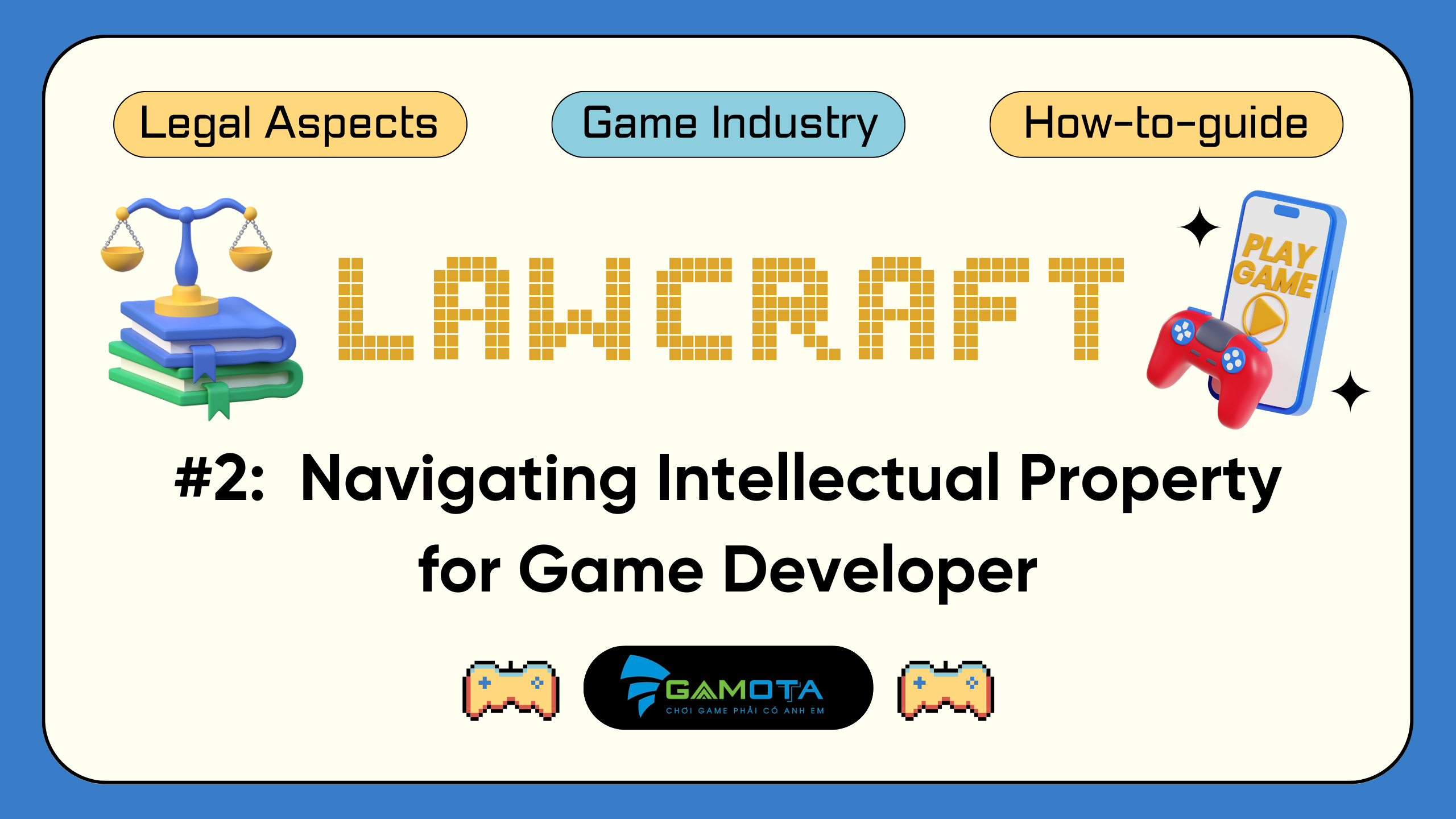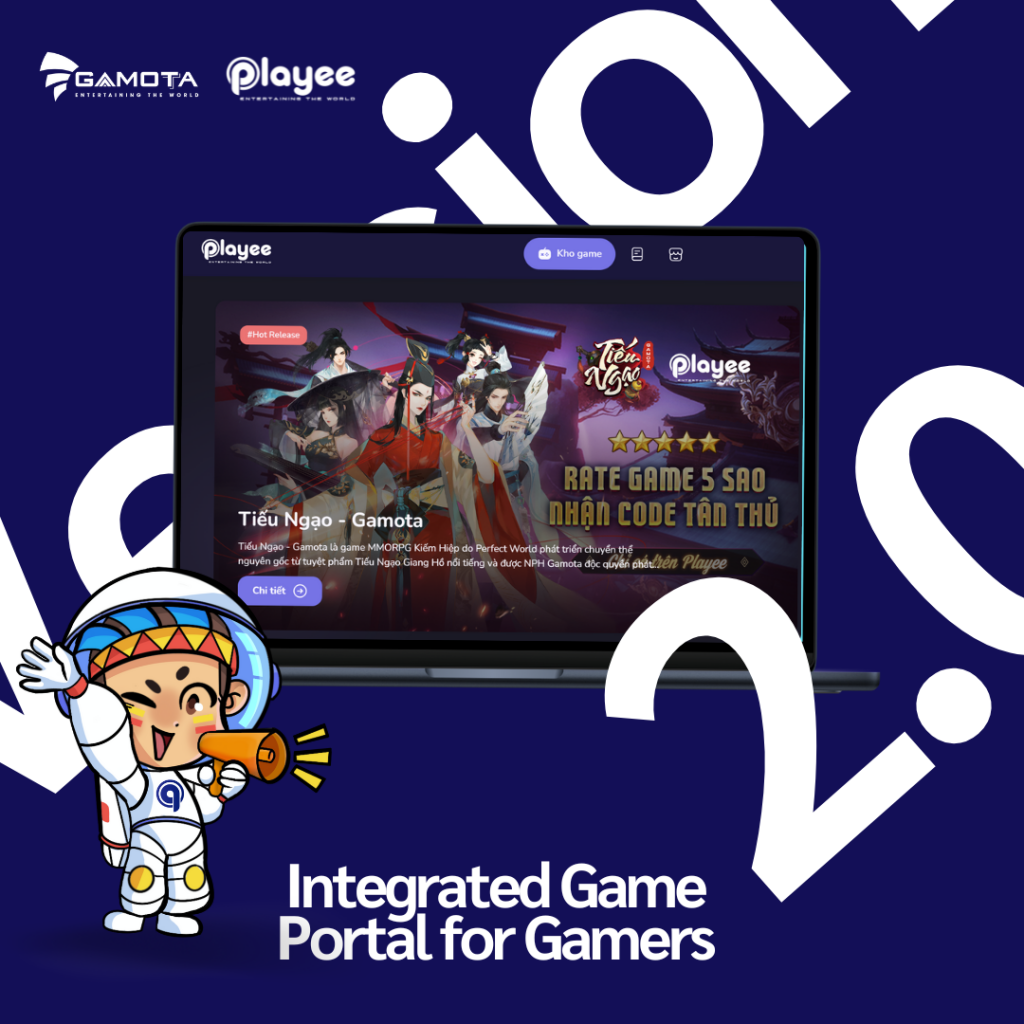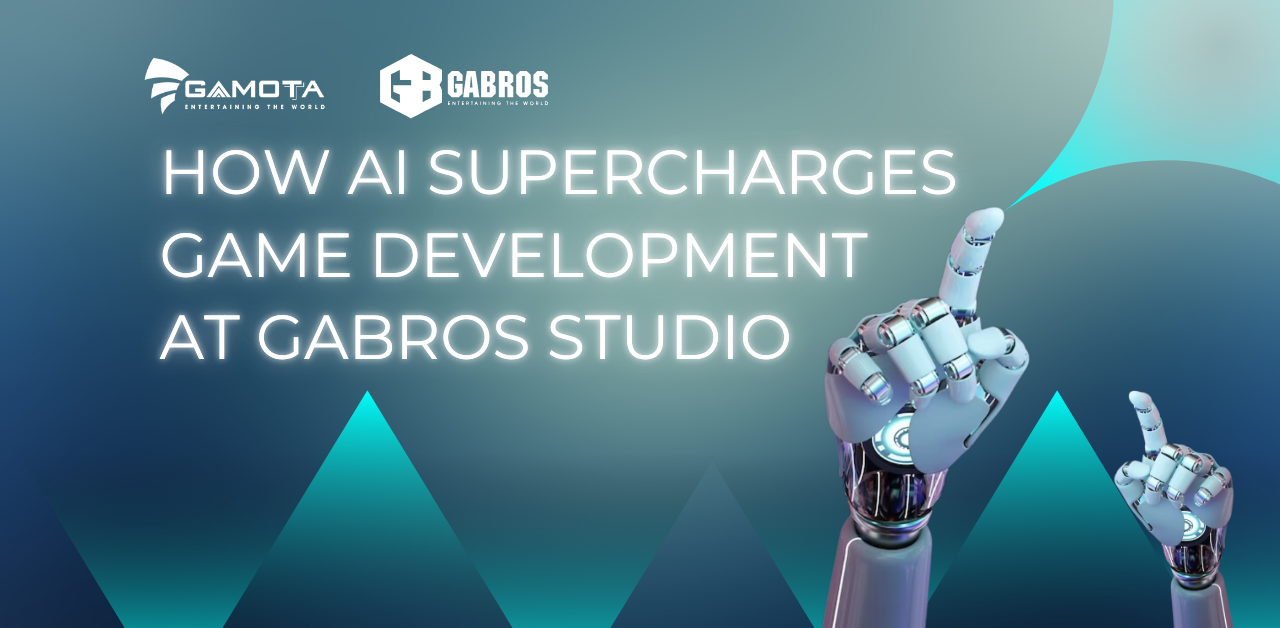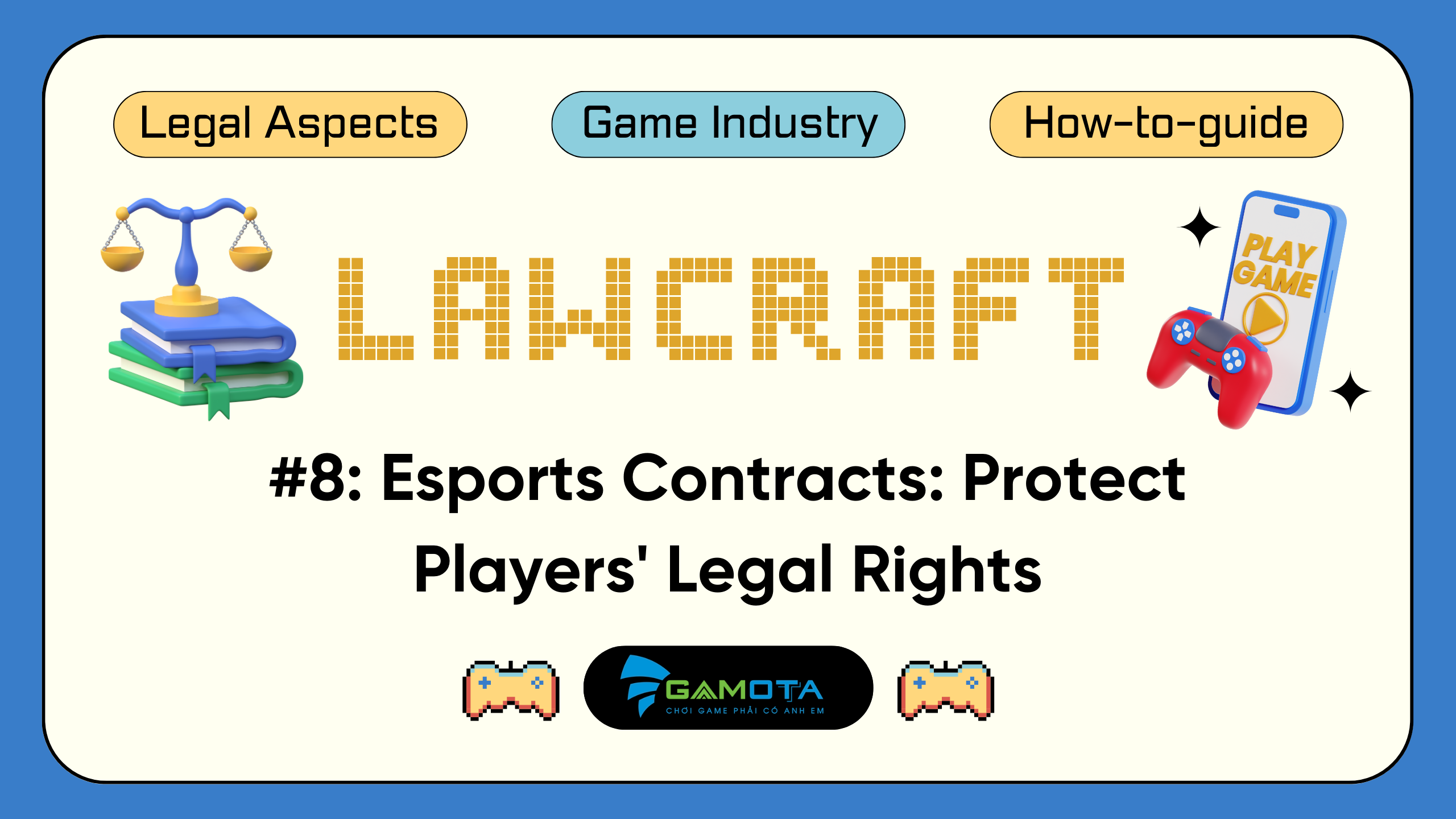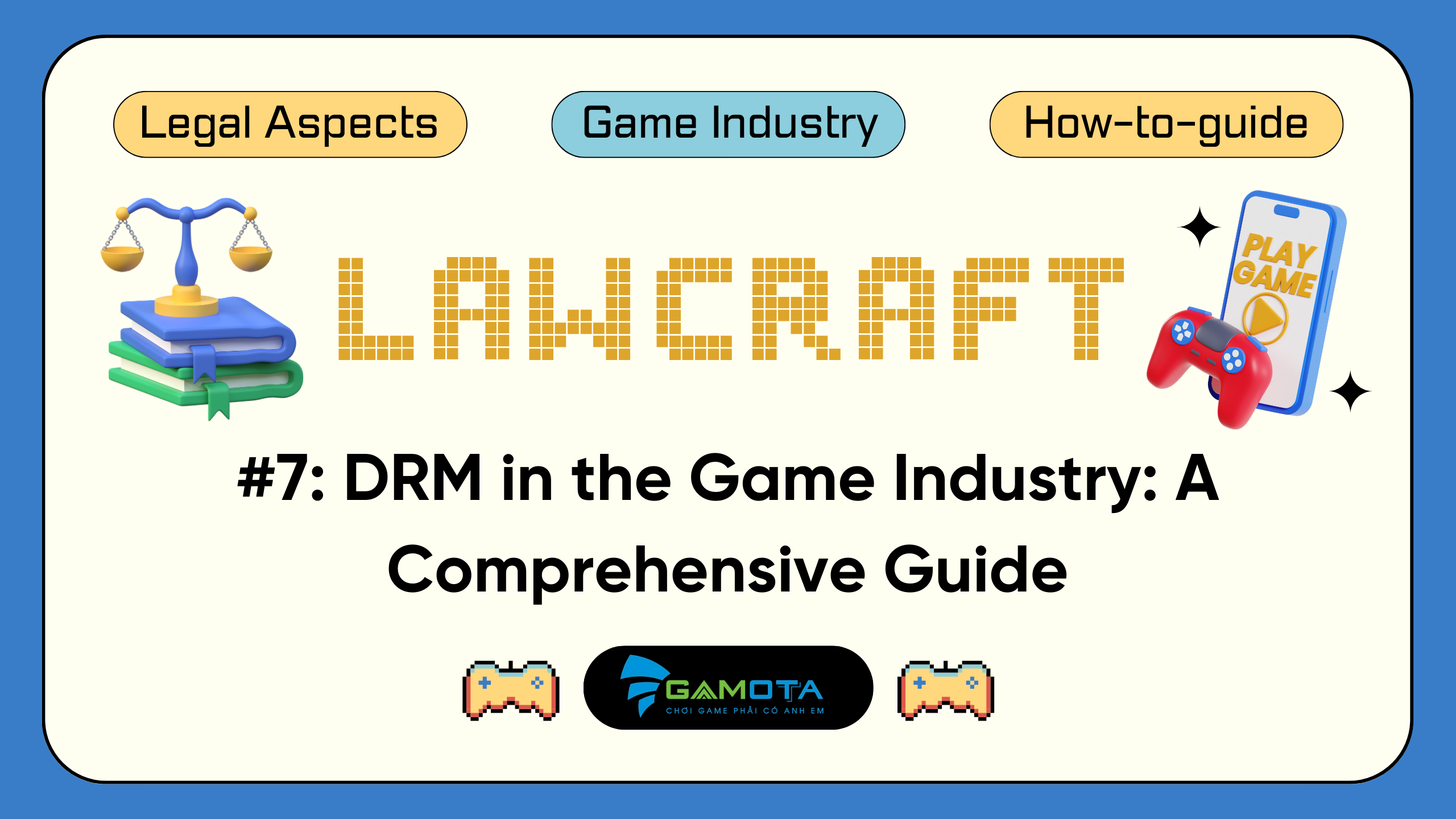In the dynamic and ever-evolving world of the game industry, where innovation and creativity flourish, safeguarding your intellectual property (IP) has become more crucial than ever. This comprehensive guide is your compass to navigating the intricate landscape of IP rights within the gaming sector. From patents and copyrights to trademarks and trade secrets, we’ll explore the multifaceted world of protecting your creative endeavors and innovations.
Disclaimer: You should take note that we are not legal consultants or counselors. However, we are an enterprise that has dealt with so much paperwork, and legal documents to bring the best entertainment experience tailored to our customers. We are delivering messages based on our work ethics, experience, and of course, objective standpoint accumulated from ups and downs. Therefore, keep this article as a checklist for a piece of mind. Okay, now let’s delve into the IP navigation for game developers
Evolution of Intellectual Property in the Game Industry
The history of IP protection in the gaming industry is a tapestry woven with legal battles and transformative moments. An illustrative case from the past is the 1981 lawsuit between Phillips and Atari over a PacMan clone, establishing the application of copyright to software aesthetics. As games have grown in complexity and scope, identifying instances of IP infringement demands a vigilant approach.
Read More on Most Common Legal Issues Faced by Game Developers

Understanding Intellectual Property
Intellectual property (IP) refers to a category of property that includes intangible assets created by the human mind, such as ideas, inventions, designs, and creative works. In the context of game development, intellectual property encompasses the legal rights and protections associated with the creative and artistic components of game design. Here are the main sub-categories of intellectual property
Patents: Innovate and Protect
Patents shield your inventions, granting exclusive rights to utilize, sell, and produce them. They are indispensable in safeguarding unique game mechanics, interfaces, and technologies. For example, Nintendo’s D-Pad and Mass Effect’s Dialogue wheel underscore the breadth of patent applications in gaming. International Patent Cooperation Union facilitates streamlined applications across borders.

Copyrights: Preserving Creativity
Copyrights protect the original expression of ideas in creative works. In gaming, copyrights extend to characters, stories, art, music, software, and even names and settings. Unlike patents, copyrights are automatically granted upon creation, although specific standards of originality must be met. Contracts are vital for clarifying ownership, especially when collaborating with external contributors.
Trademarks: Identity and Distinction
Trademarks safeguard recognizable signs, designs, or expressions that differentiate products or services. In gaming, trademarks encompass logos, company names, and game titles. Effective trademark registration prevents conflicts and imitations. Prioritizing distinctive names and proactive registration is key to preempting legal challenges.

Trade Secrets: Innovation’s Hidden Gems
Trade secrets encompass confidential information vital to a company’s success. These could include novel ideas, mechanics, or code within the gaming industry. Non-disclosure agreements (NDAs) play a pivotal role in protecting trade secrets, ensuring the proprietary nature of innovations.
Steps to Protecting Your Intellectual Property
Crafting a robust strategy for IP protection involves several key steps:
- Catalog Your IP: Identify all assets warranting protection, from patentable technologies to copyrighted content.
- Trademark Registration: Register trademarks for logos, company names, and game titles to prevent conflicts.
- Patent Applications: File patents for novel mechanics, interfaces, or technologies that merit protection.
- Copyright Contracts: Establish comprehensive contracts with collaborators to define ownership and preempt disputes.
- Safeguard Trade Secrets: Employ NDAs and trade secret measures to safeguard confidential innovations.
- Access Control: Limit access to sensitive information to minimize risks of breaches and unauthorized usage.
- Enhance Security: Bolster cybersecurity to thwart hacking, reverse engineering, and unauthorized access.
- Legal Expertise: Consult legal professionals well-versed in IP law to address potential issues proactively.
- Insurance Consideration: Explore intellectual property insurance options for added protection.

Addressing Legal Challenges
Intellectual property is really a tough deal and legal challenges may arise from various angles:
Defending Against Lawsuits
In the event of a legal dispute, seek legal counsel before admitting fault. Engage with the opposing party to resolve the issue amicably. Legal threats or cease and desist letters often precede lawsuits, allowing negotiation. If covered by intellectual property insurance, consider coverage extent before pursuing legal action.
Responding to Breaches
When faced with IP breaches, proceed methodically:
- Gather Information: Document breach details, including dates and times.
- Consult Legal Experts: Seek advice to determine appropriate responses and actions.
- Engage Responsibly: Communicate with the infringing party to resolve the issue amicably.
- Legal Remedies: If necessary, consider legal actions such as DMCA takedown notices.
- Prevent Future Breaches: Strengthen contracts, enhance access control, and fortify cybersecurity.

A Little Advice from Gamota
What to Do If you Got in Trouble for Intellectual Property Infringement
- Seek legal advice: The developer should consult with an experienced IP lawyer who can help assess the situation and provide guidance on the best course of action.
- Review the claim: The developer should review the claim and determine whether it is valid or not. They should also gather evidence that supports their case.
- Consider settlement: The developer may want to settle the dispute out of court to avoid costly legal fees and a lengthy legal battle.
- Defend the claim: If the developer believes the claim is invalid, they can defend themselves in court. They should provide evidence that supports their case and refute the claims made against them.
- Developers should review their IP strategy and ensure that they have appropriate protections to prevent future disputes.

Common Defenses for an Intellectual Property Infringement Lawsuit
- Fair use: If the use of copyrighted material is considered fair use, it may not be considered an infringement. Fair use is a legal doctrine that allows for the limited use of copyrighted material without permission for purposes such as criticism, commentary, news reporting, teaching, scholarship, or research.
- Independent creation: If the developer can prove that they independently created the allegedly infringing material, they may be able to defend themselves against the claim.
- Invalidity: If the IP rights claimed by the plaintiff are invalid, the developer may be able to defend themselves against the claim.
- License: If the developer has a license to use the allegedly infringing material, they may be able to defend themselves against the claim.
- Non-infringement: If the developer can prove that they did not infringe on the plaintiff’s IP rights, they may be able to defend themselves against the claim.
The gaming industry thrives on innovation, creativity, and relentless progress. Safeguarding your intellectual property is fundamental to this journey. By navigating the intricacies of patents, copyrights, trademarks, and trade secrets, you fortify your creative endeavors and innovations. This ensures your growth and the advancement of the entire gaming landscape. Remember, your contributions shape the future of gaming – secure them wisely.
CONTACT US NOW to get more info and advice, or Subscribe down below if you’re interested in our weekly newsletter


